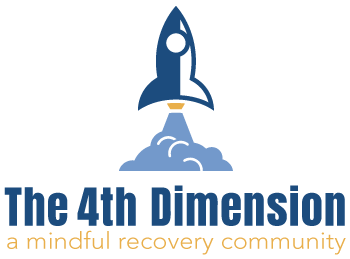
23 Mar What is SMART Recovery?
Wish though we might, no recovery method is “one size fits all.” When the time comes to take our own journey toward healing, we need the guiding philosophy that’s right for us, not the one that’s right for some or most.
Plenty of recovery programs rely on faith and an acknowledgment of addiction as a disease. These popular programs can even require deference to a self-defined “higher power”–a potentially deal-breaking and uncomfortable roadblock.
For some of us, these details just don’t add up. We find it hard to buy into the ethos of a recovery program which, in turn, makes recovery that much harder to achieve. There is, however, an answer: SMART Recovery.
SMART Recovery Basics
For starters, SMART stands for “Self-Management and Recovery Training.” Unlike faith-based and 12-step programs, SMART recovery is resoundingly secular and relies on methods and daily practices based on a firm belief in science.
SMART recovery highly values an individual’s power for self-change while still promoting a global community of like-minded support groups. Through a few simple steps, SMART recovery uses cutting edge cognitive behavioral therapy sessions (CBT) to target the unwanted thoughts and feelings within us that may be responsible for unhealthy behaviors.
How SMART is Different
SMART recovery differs in several key ways from other popular programs.
- SMART does NOT encourage or require:
Admissions of powerlessness over addictions
Acknowledgments in the presence of a “higher power”
The theory of alcoholism as a “disease” - Conversely, SMART recovery does:
Rely on secular understanding
Rely on science and scientific advancements in treatment
View some addictions as a dysfunctional habit rather than a disease
Use non-confrontational motivational methods
Stages of Change
Rather than “steps,” SMART recovery promotes 5 “stages of change.”
- The Stages of Change:
Precontemplation Stage – The time before acknowledging the problem.
Contemplation Stage – Acknowledging the problem and deciding how to solve it.
Preparation Stage – Making a plan of action and beginning to change.
Action Stage – Finally taking active steps to modify a behavior.
Maintenance Stage – Graduation into recovery while acknowledging regular maintenance.
SMART recovery organizers admit that it may take several restarts before graduation, with many returning to the Contemplation Stage. But failure is seen as another opportunity to learn in the SMART program.
Therapy
SMART Recovery programs rely on cutting-edge therapeutic treatments and can adjust for pharmaceutical routines accordingly.
Cognitive Behavioral Therapy
While most therapeutic interventions offer us insight into ourselves, few methods emphasize our power for self-change quite as much as CBT.
CBT relies on self-examination and talk therapy sessions to identify unwanted thoughts and feelings. By examining how we react to unwanted emotions that may trigger our addictive behaviors, we may be able to reprogram our response and ultimately alter an unhealthy coping habit.
Rational Emotive Behavioral Therapy
This short-term form of psychotherapy encourages us to challenge the rationality of unwanted thoughts and feelings. Like CBT, REBT promotes the identification and replacement of unhealthy coping habits.
The Right Recovery for YOU
Not every program is capable of helping us across the finish line. Recovery and belief go hand in hand, and belief in a recovery program usually translates to a belief in yourself.
For more information on SMART recovery, contact 4th Dimension today!
If recovery is a life-long marathon, then the right program is like the perfect pair of shoes. By researching and deciding on the best program of recovery, you’re preparing for long-term success and comfort. Something as important as recovery shouldn’t be left up to “whatever’s available near me.”
For more specifics about SMART Recovery, please contact the 4th Dimension via our contact page.

